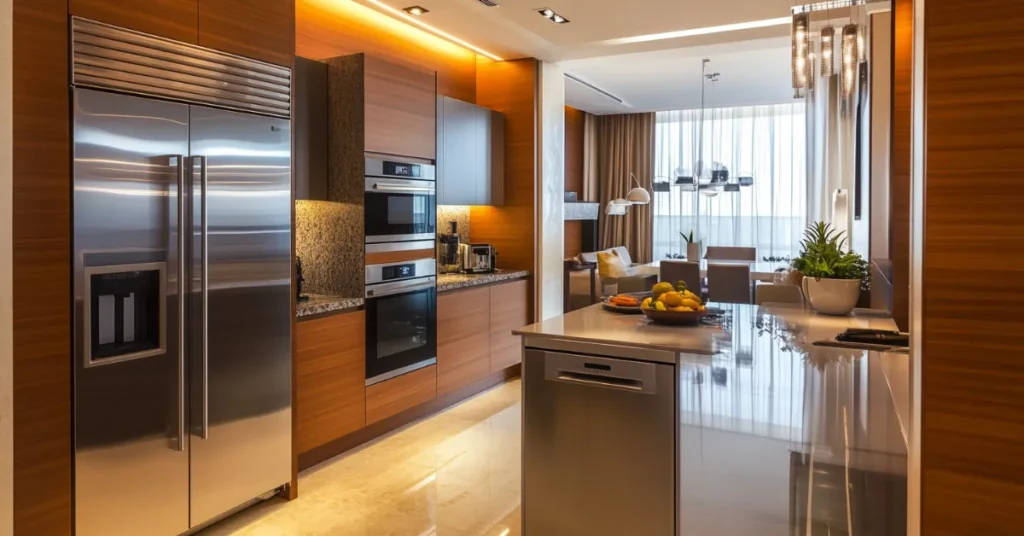Pet-friendly Airbnbs have become a hot topic for hosts looking to maximize their vacation rental income. With pet ownership on the rise, over 70% of U.S. Households own pets, catering to pet owners offers a competitive advantage in the crowded vacation rental market. But do pet-friendly Airbnbs make money, and is it worth the effort? This Airbnb Tips article breaks down the financial potential, operational considerations, and strategic insights for hosts, with a focus on how 10XBNB’s proven strategies can amplify your success in offering pet-friendly vacation rentals. Additionally, we provide advice on hosting pet-friendly accommodations during the Coronavirus pandemic, sharing personal experiences and insights on increasing bookings while maintaining consistent policies for guests regarding pets.
Introduction to the Market
The demand for pet-friendly vacation rentals is on the rise, with approximately 66% of US households owning a pet. As a result, offering a pet-friendly Airbnb or vacation rental can be a lucrative business venture, providing a competitive advantage and attracting a new demographic of guests. Pet owners are willing to pay extra for pet-friendly accommodations, making it an excellent opportunity for hosts to increase revenue and occupancy rates. By catering to the needs of pet owners, hosts can tap into a vast market and reap the numerous benefits of offering pet-friendly amenities.

The Rising Demand for Pet-Friendly Vacation Rentals
Pet owners are increasingly prioritizing travel with their furry companions, driving demand for pet-friendly vacation rentals. According to industry data, 53% of pet owners travel with their pets, and a significant percentage of guests bring pets with them, making pet-friendly listings among the top amenities searched on platforms like Airbnb and Vrbo. This trend creates a niche opportunity for hosts to attract a loyal segment of travelers willing to pay a premium for pet-friendly accommodations.
By offering a pet-friendly Airbnb, you tap into a market where demand often outstrips supply. In many destinations, pet-friendly listings make up less than 10% of total vacation rentals, giving hosts a chance to stand out. For example, 10XBNB’s data-driven approach shows that pet-friendly vacation rentals in coastal and mountain regions, like Siesta Key, Florida, can command daily rates up to 2.4 times higher than non-pet-friendly properties.
Financial Benefits of Pet-Friendly Airbnbs
Allowing pets can significantly boost your Airbnb’s revenue through higher rates, increased occupancy, and additional fees. Here’s how pet-friendly vacation rentals translate into extra revenue:
- Higher Nightly Rates: Pet-friendly listings often charge 20-30% more than comparable non-pet-friendly properties. For instance, a 3-bedroom pet-friendly Airbnb in a drive-to market might fetch $638 per night compared to $302 for a non-pet-friendly equivalent. This premium reflects the value pet owners place on bringing their dogs or cats.
- Increased Occupancy: Pet-friendly Airbnbs attract guests planning extended stays, as pet owners often avoid kennels for long periods. These longer bookings reduce turnover costs and stabilize income. 10XBNB’s rental arbitrage model, detailed at learn.10xbnb.com/short-term-rentals-investment/, emphasizes targeting niche markets like pet owners to maximize occupancy.
- Pet Fees: Hosts can add a pet fee to cover extra cleaning or potential damage. The average pet fee for Airbnb ranges from $20 per night to $100 flat rate, with some hosts capping fees at $150-$250 per stay. These fees directly offset costs like pet hair removal or furniture cleaning.
- Repeat Bookings: Pet owners often return to trusted pet-friendly listings, fostering guest loyalty. Positive reviews from pet owners can also attract future guests, amplifying your booking pipeline.
Pro Tip: Use 10XBNB’s mid-term rental calculator to estimate revenue potential for extended pet-friendly stays, factoring in pet fees and seasonal demand.
Pricing Strategy for Success
pricing a pet-friendly vacation rental, it’s essential to consider the extra costs associated with allowing pets, such as additional cleaning and potential damage. Hosts can implement a pricing strategy that includes a pet fee, which can range from $10 to $50 per night, depending on the location and type of property.
This fee can help cover the costs of extra cleaning and maintenance. By clearly stating the pet fee in the listing description and house rules, hosts can avoid any misunderstandings and attract pet owners who are willing to pay for the convenience of bringing their furry companions along.
Operational Considerations for Pet-Friendly Airbnbs
While the financial upside is clear, managing a pet-friendly Airbnb requires strategic planning to maintain cleanliness, safety, and guest satisfaction. Here are key considerations:
Setting Clear House Rules
Your listing description should decide on specific house rules for pets. Specify the number of pets allowed (e.g., two dogs max), size restrictions (e.g., under 50 lbs), and areas where pets are prohibited (e.g., on beds or furniture). Clear rules prevent misunderstandings and reduce the risk of damage. For example, 10XBNB advises hosts to include pet policies in automated guest communications to streamline the booking process.
Pet-Friendly Amenities
Investing in pet-friendly amenities enhances guest experience and justifies higher rates. Create a list of considerations for pet-friendly hosts, including:
- Food and water bowls
- Pet beds or crates
- Treats or toys
- Fenced yards or outdoor play areas
- Recommendations for local dog parks or pet-friendly attractions
These amenities make your property a good fit for pet owners and encourage positive reviews.
Managing Extra Cleaning
Pets can increase cleaning demands due to pet hair, accidents, or odors. Delegate cleaning to professional services to ensure your property is pristine for future guests. The pet fee should cover these costs, but hosts can also request reimbursement for damages through Airbnb’s Resolution Center, as noted in 10XBNB’s guide on insurance coverage. By catering to unique niches and having your property listed as pet-friendly, you can expand your customer base and enhance booking potential.
Mitigating Risks
While most pets are well-behaved, accidents happen. Dogs may chew furniture, or cats may scratch floors. To minimize risk:
- Use durable, pet-resistant materials like hardwood floors or leather furniture.
- Set a security deposit ($400 is common) to cover potential damages.
- Verify pet behavior through guest communication before confirming bookings.
Given the increasing number of pet owners and their willingness to pay more for pet-friendly accommodations, it makes sense to adapt to this demand.
10XBNB’s risk management strategies, detailed at learn.10xbnb.com/airbnb-appraisal/, help hosts assess property suitability for pet-friendly rentals.
Enhancing the Guest Experience
To enhance the guest experience and attract positive reviews, hosts can offer a range of pet-friendly amenities, such as pet beds, treats, and toys. Providing a welcoming environment for pets can make a significant difference in the overall guest experience, encouraging pet owners to return and recommend the property to others.
Additionally, hosts can consider offering additional services, such as dog walking or pet sitting, to cater to the needs of pet owners and increase revenue. By prioritizing cleanliness and safety, hosts can create a comfortable and enjoyable environment for both pets and their owners, setting their property apart from others in the market.

Pros and Cons of Pet-Friendly Airbnbs
Pros
- Higher Revenue: Premium rates and pet fees boost income.
- Competitive Advantage: Stand out in markets with limited pet-friendly options.
- Loyal Guests: Pet owners often return to trusted listings.
- Niche Appeal: Attract families and travelers prioritizing their pets.
Cons
- Increased Maintenance: Extra cleaning and potential repairs add costs.
- Allergy Concerns: Pet hair or dander may deter future guests with allergies.
- Liability Risks: Unruly pets could cause damage or neighbor complaints.
- Selective Guest Pool: Some guests may avoid pet-friendly listings due to preferences.
Is It Worth It to Allow Pets in Airbnb?
For most hosts, allowing pets is a profitable strategy if managed correctly. The numerous benefits, higher rates, increased occupancy, and guest loyalty, often outweigh the risks. Data from Key Data shows pet-friendly vacation rentals achieve 42% occupancy compared to 37% for non-pet-friendly properties, with a nightly revenue per available room (RevPAR) 2.4 times higher in top markets. By following 10XBNB’s data-driven approach, hosts can optimize their pet-friendly Airbnb for maximum returns while minimizing drawbacks. Additionally, allowing pets not only enhances the overall guest experience but also increases the likelihood of repeat visits, as guests who feel welcomed with their pets are more inclined to return for future stays.
Pro Tip: Use vacation rental accounting software to track pet fee income and cleaning expenses.
Is Airbnb Not Pet-Friendly Anymore? Are Pets No Longer Allowed?
Airbnb remains highly supportive of pet-friendly listings. The platform has a dedicated “pets allowed” filter, and 27% of U.S. Airbnb listings are pet-friendly, compared to 25% on Vrbo. Rumors about Airbnb restricting pets are unfounded, hosts set their own pet policies, and the platform encourages catering to pet owners. However, local regulations or homeowner associations may limit pets in some properties, so hosts should verify compliance before offering pet-friendly stays. Sharing experiences and advice on creating a pet friendly listing can help attract more bookings, especially during the challenges posed by the Coronavirus pandemic.
What Is the Average Pet Fee for Airbnb?
The average pet fee varies by market and property type. Based on BnB Facts, 23% of pet-friendly Airbnb hosts charge a fee, typically $20 per night or $100 flat rate. Some hosts charge per pet (41% of listings), while others apply a flat fee for multiple pets. High-end properties or those in pet-friendly hotspots may charge $150-$250 per stay. 10XBNB recommends setting fees based on cleaning costs and market demand.
Does Airbnb Do Pet Friendly? How to See If an Airbnb Is Pet Friendly?
Airbnb actively supports pet-friendly vacation rentals. To identify pet-friendly listings:
- Use the “pets allowed” filter on Airbnb’s search page.
- Check the listing description and house rules for pet policies.
- Message the host to confirm pet suitability, especially for large dogs or multiple pets.
When you book unique accommodations on Airbnb, make sure to follow the pet policies outlined by the host. Hosts can mark their property as pet-friendly in the listing settings, making it easy for guests to find places that welcome their furry companions. 10XBNB’s rental arbitrage model, explained at learn.10xbnb.com/airbnb-no-money/, shows how to optimize listings for pet-friendly searches to attract more bookings.
Can Airbnb Deny Service to a Dog?
Airbnb hosts cannot deny service to a dog if it’s a service animal, as defined by the ADA. Service animals, typically dogs trained to perform tasks for individuals with disabilities, are not considered pets and must be accommodated without additional fees. However, hosts can deny non-service pets or emotional support animals (ESAs) unless local laws require otherwise. For ESAs, hosts may charge a pet fee or decline the booking if their listing isn’t pet-friendly, as outlined in Airbnb’s Accessibility Policy.
Pro Tip: If selling a pet-friendly Airbnb property, highlight its revenue potential to buyers, as detailed in 10XBNB’s guide on selling Airbnb property.
Strategic Insights for Pet-Friendly Airbnb Success
To make your pet-friendly Airbnb a money-making machine, consider these expert strategies:
- Target Pet-Friendly Hotspots: Focus on drive-to destinations like mountains or beaches, where pet owners prefer vacation rentals over hotels. Locations like Austin or San Diego are top markets for pet-friendly stays.
- Use Guest Reviews: Encourage pet owners to leave detailed reviews about pet-friendly amenities, boosting your listing’s visibility and appeal.
- Offer Additional Services: Partner with local pet-sitting or grooming services to enhance the guest experience, potentially earning referral fees.
- Optimize Pricing: Use dynamic pricing tools to adjust rates and pet fees based on demand, as recommended in 10XBNB’s investment strategies.
Bringing pets along can enhance the enjoyment of the trip, so ensure your accommodations and supplies make both pets and their owners feel comfortable during their stay.
Marketing Your Rental
When marketing a pet-friendly vacation rental, it’s crucial to highlight the property’s pet-friendly features and amenities in the listing description and photos. Using keywords like “pet-friendly” and “pets allowed” can help attract potential guests who are searching for properties that cater to their furry companions. Hosts can also utilize social media platforms to showcase their property and engage with potential guests, sharing photos and stories of happy pets and their owners. By emphasizing the benefits of booking a pet-friendly vacation rental, such as the ability to bring pets along and avoid costly kennels, hosts can attract a loyal customer base and increase bookings. By following these marketing strategies, hosts can successfully promote their pet-friendly rental and attract a steady stream of guests who appreciate the convenience and comfort of bringing their pets along.

Addressing Common Concerns
Allergies and Cleanliness
Pet hair and dander can deter guests with allergies. Use HEPA filters, hypoallergenic bedding, and thorough cleaning protocols to ensure your space is suitable for all guests. Communicate your cleaning standards in the listing to reassure potential guests.
Damage and Liability
While rare, pet damage is a concern. 10XBNB’s risk mitigation strategies include setting clear expectations and using Airbnb’s Host Damage Protection, which covers pet-related issues. For added security, explore fix and rent loans to fund property upgrades like pet-resistant flooring.
Community Considerations
In condos or shared spaces, verify pet policies with HOAs or neighbors to avoid conflicts. Clear communication with guests about leash rules and waste disposal maintains community harmony.
Why Pet-Friendly Airbnbs Are a Smart Investment
Pet-friendly Airbnbs make money by capitalizing on a growing market with limited competition. By offering pet-friendly vacation rentals, hosts can charge higher rates, secure longer bookings, and build a loyal guest base. The key is strategic management, clear house rules, thoughtful amenities, and strong cleaning protocols ensure profitability while minimizing risks. With 10XBNB’s expertise, hosts can transform their properties into high-performing pet-friendly listings that dominate their markets.
Whether you’re a seasoned host or starting with rental arbitrage, pet-friendly Airbnbs offer a proven path to financial success. Implement these strategies, use 10XBNB’s tools, and watch your vacation rental business thrive.













